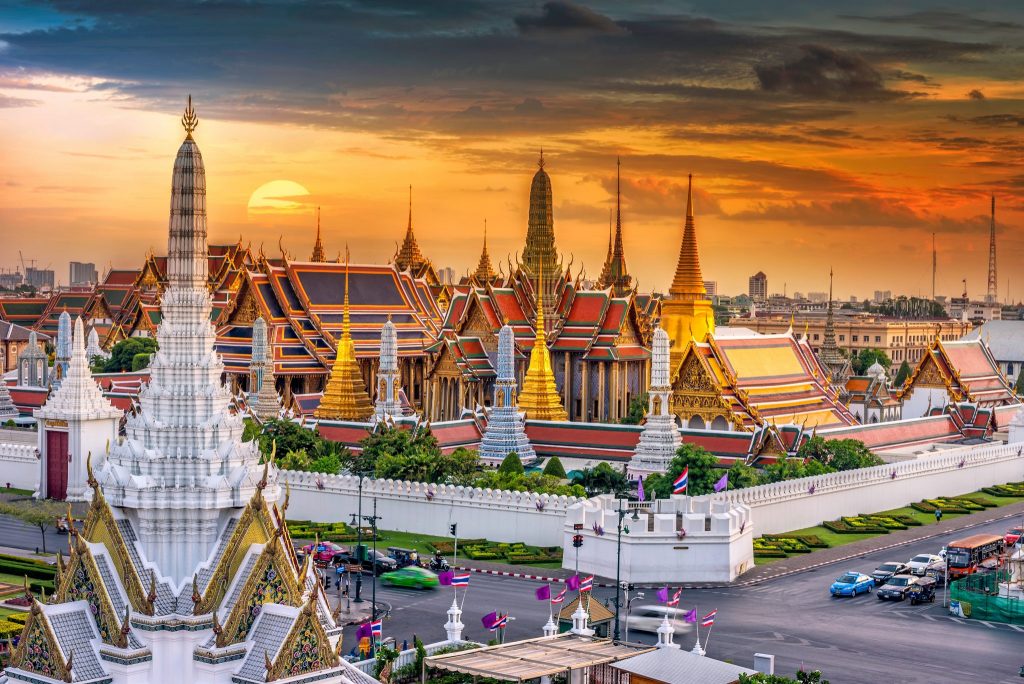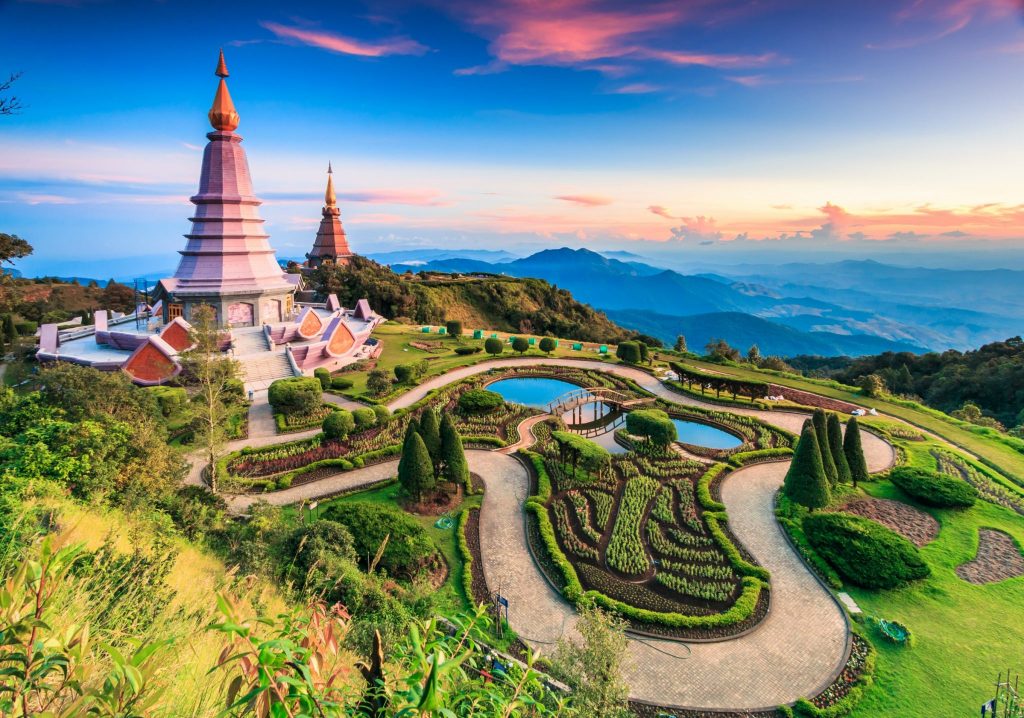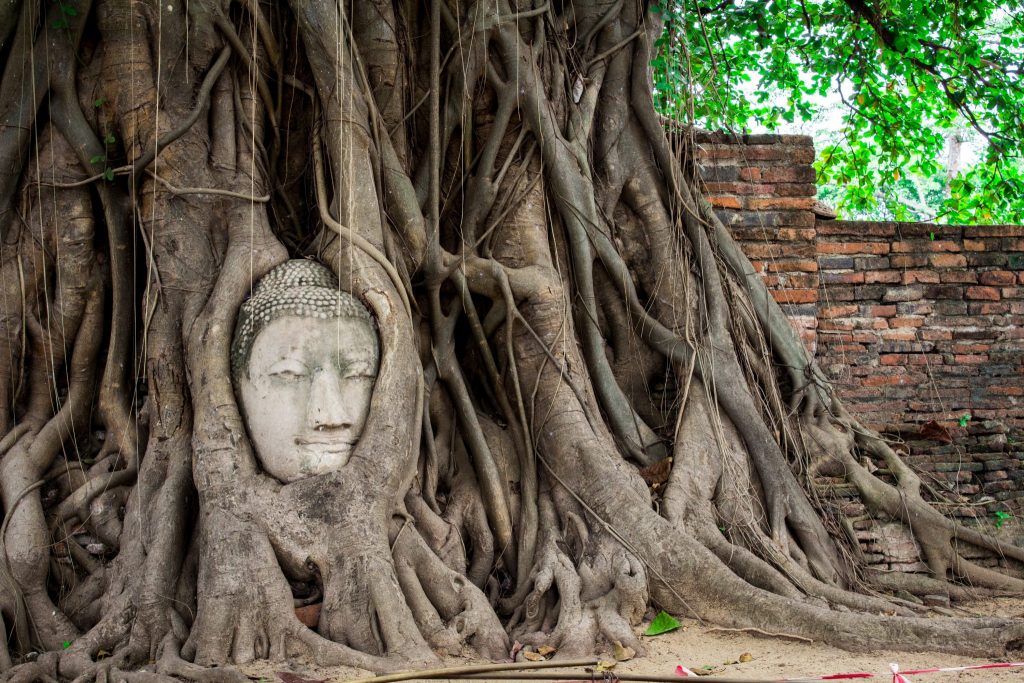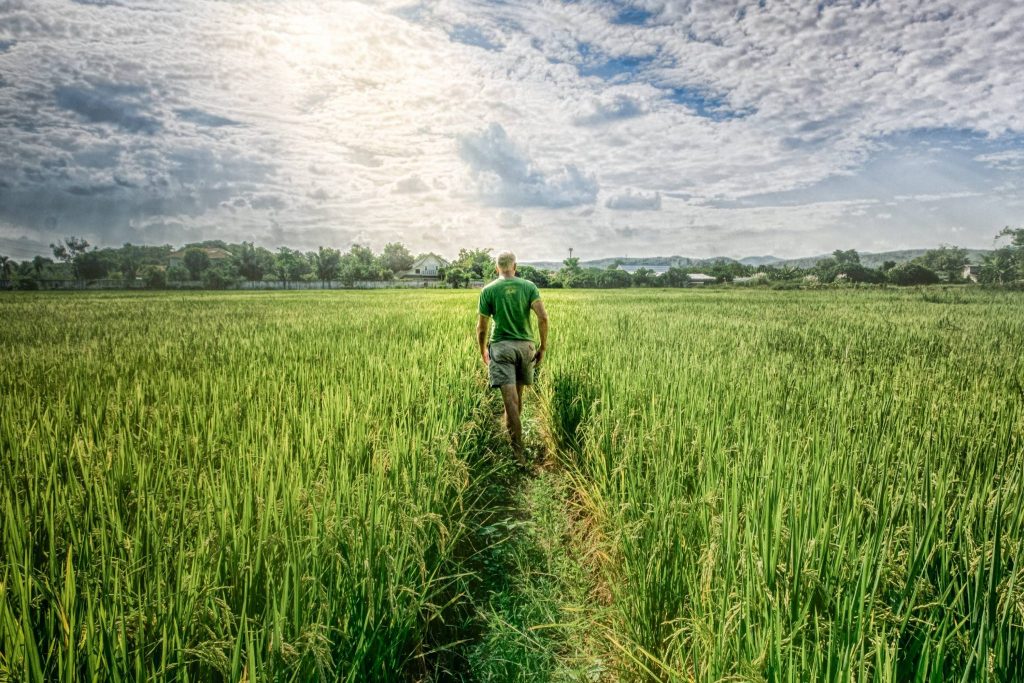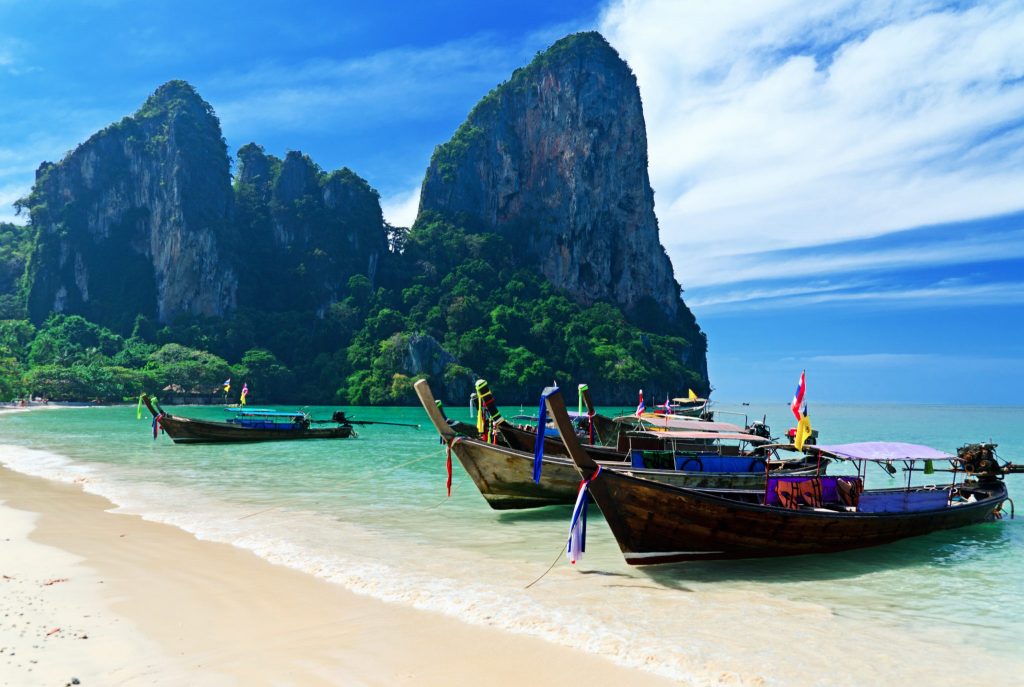Travel Thailand
Temples, beaches, smiling faces, world-class cuisine, shopping, stunning scenery...the list goes on.
Thailand is a well established holiday destination and deservedly so. Within a two week vacation you can relax on world class beaches, visit inspiring historical sites, trek through glorious mountain and jungle landscapes, eat some of the most delicious food on the planet, do a yoga or meditation course and, if you still have the energy, engage in some serious shopping.
The Thais have a reputation of being welcoming and warm, because of this Thailand is an easy and stress-free country to travel in and the perfect place to enjoy by bike. The country has an excellent transport network and some truly gorgeous accommodation. And to top it all off it is still great value by western standards.
So, what are you waiting for?
QUICK FACTS
CURRENCY
Thai Baht
CAPITAL CITY
Bangkok
POPULATION
Approx. Approx. 67 million
TIME ZONE
GMT +7
LANGUAGE
Thai
RELIGION
Buddhism
MAIN INTERNATIONAL AIRPORTS
Bangkok (BKK) - Chiang Mai (CNX) - Phuket (HKT) - Koh Samui (USM)
Weather & Climate
Most regions of Thailand have a humid tropical climate for the majority of the year. The area of Thailand north of Bangkok has a climate determined by three seasons while the southern peninsular region of Thailand has only two.
In northern Thailand the seasons are the cold season, the hot season and the rainy season. The months from November to February are the coolest and sometimes referred to as the cold season, during which time it can actually get quite chilly in the far north. The hot season starts in March and lasts until May.
The rainy season is from May to November and is dominated by the southwest monsoon, during which time rainfall in the north is at its heaviest.
The southern region of Thailand really has only two seasons - the wet and the dry. These seasons run at opposite times on the east and west side of the peninsula, with the west coast receiving heavy rains and sometimes storms from April to October, while on the east coast most rain falls between September and December.
Overall the southern parts of Thailand get by far the most rain, with around 2,400 millimetres every year, compared with the central and northern regions of Thailand, both of which get around 1,400 millimetres.
When is the best time to visit Thailand?
Generally speaking, the best time to visit Thailand is from November to February when the northeast monsoon is blowing cool, dry air that serves as a respite from the heat. During this cool season, the temperature ranges from 18°C to 32°C in Bangkok, while in northern and northeast Thailand, temperatures can get quite cool with morning temperatures as low as 8°C to 12°C, and the occasional 20°C day. Nights can be particularly chilly and at high altitudes the temperatures can and do drop below freezing.
The summer period, or hot and dry season, is from March to May. At this time temperatures in Bangkok average around 34°C, but can often reach 40°C with humidity levels of 75%. Bring an extra T-shirt if you won't make it back to the hotel before dinner!
Try and avoid April, unless you plan to be permanently submerged in the ocean or are coming specifically for the Songkran festival, because this is the hottest month across the country.
The monsoon falls from July to October, when most of Thailand's annual rainfall is accumulated and flooding can ravage the country. The humidity averages just under 90%, with temperatures averaging around 29°C in a steamy Bangkok. Still, it rarely rains all day long as it does in many temperate places; the tropical rains tend to dump fast and heavy before clearing up.
The monsoon finishes when the wind direction changes, bringing dry weather from the northeast. At best this season can be described as unpredictable and not the constant downpour of rain that you may expect. The middle months of this season may hold particularly heavy rains for the north of the country.
Bangkok
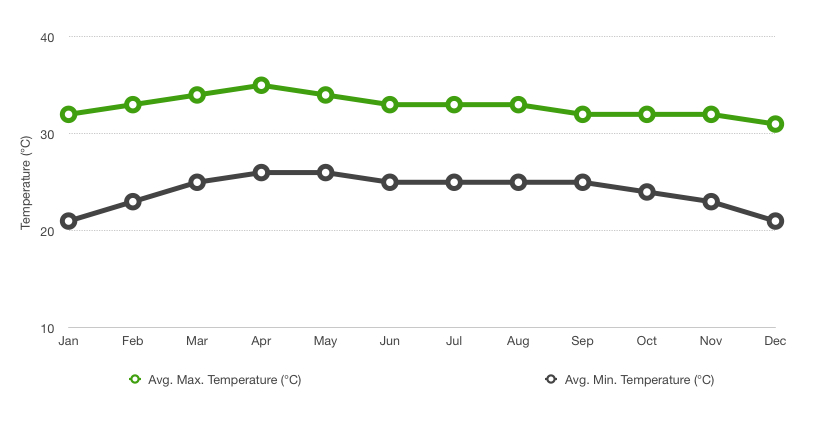
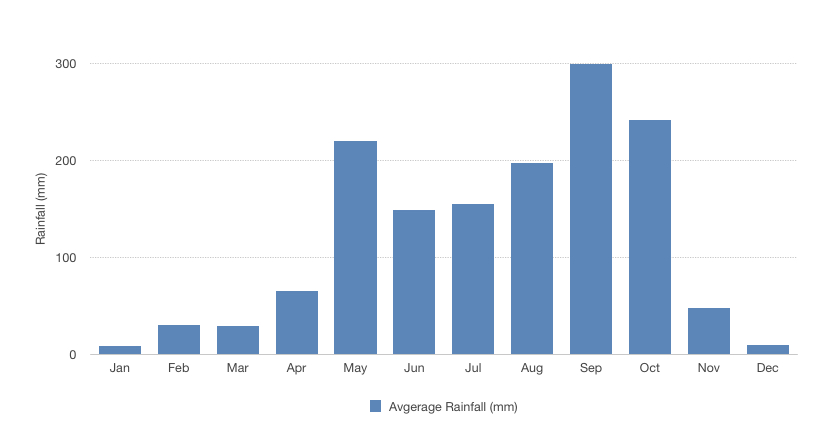
Chiang Mai
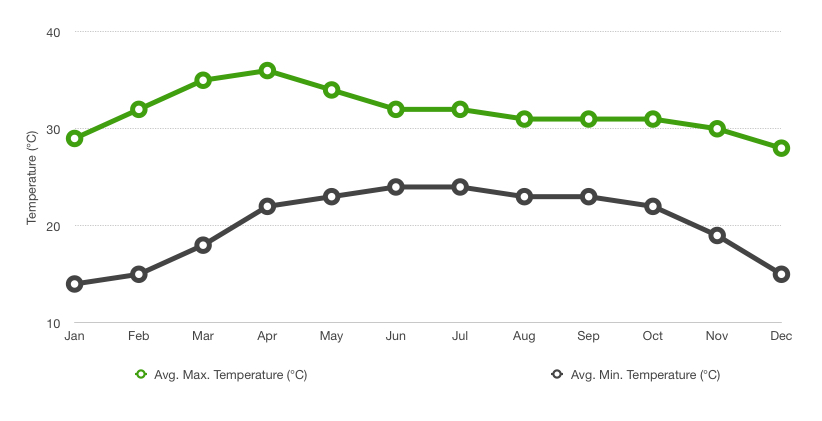
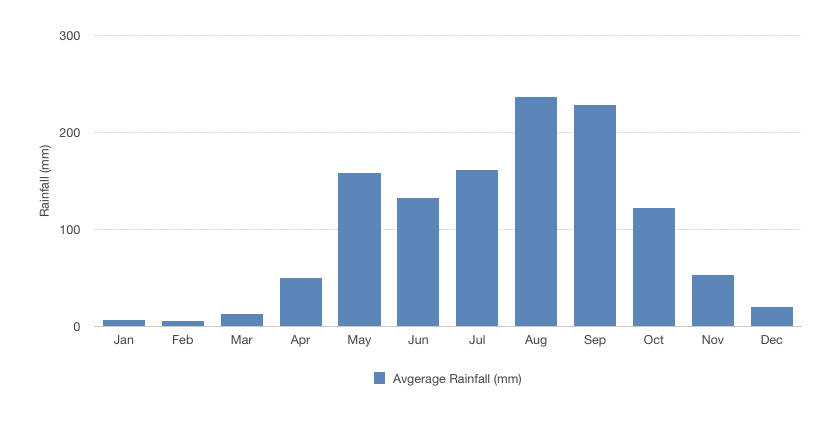
Surat Thani
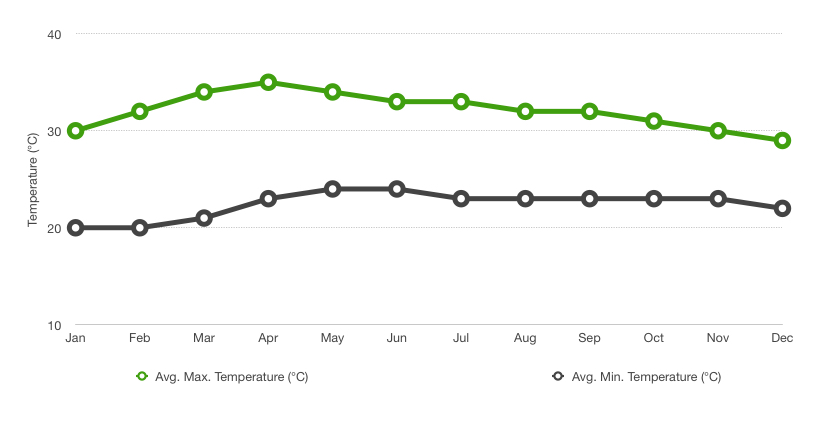
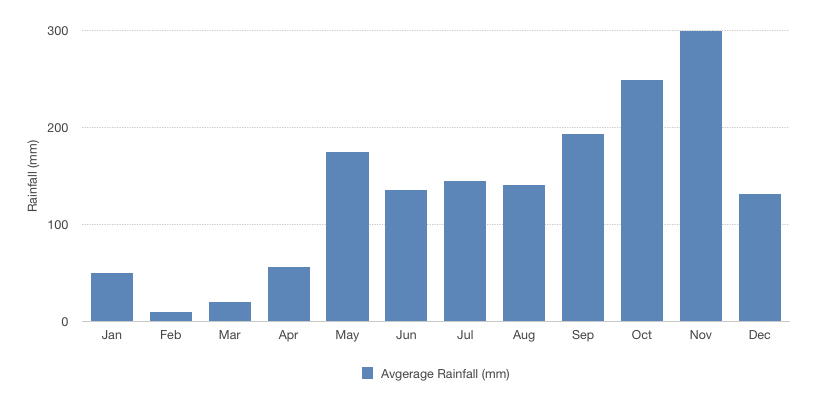
© 2024 Grasshopper Adventures. All Rights Reserved.
